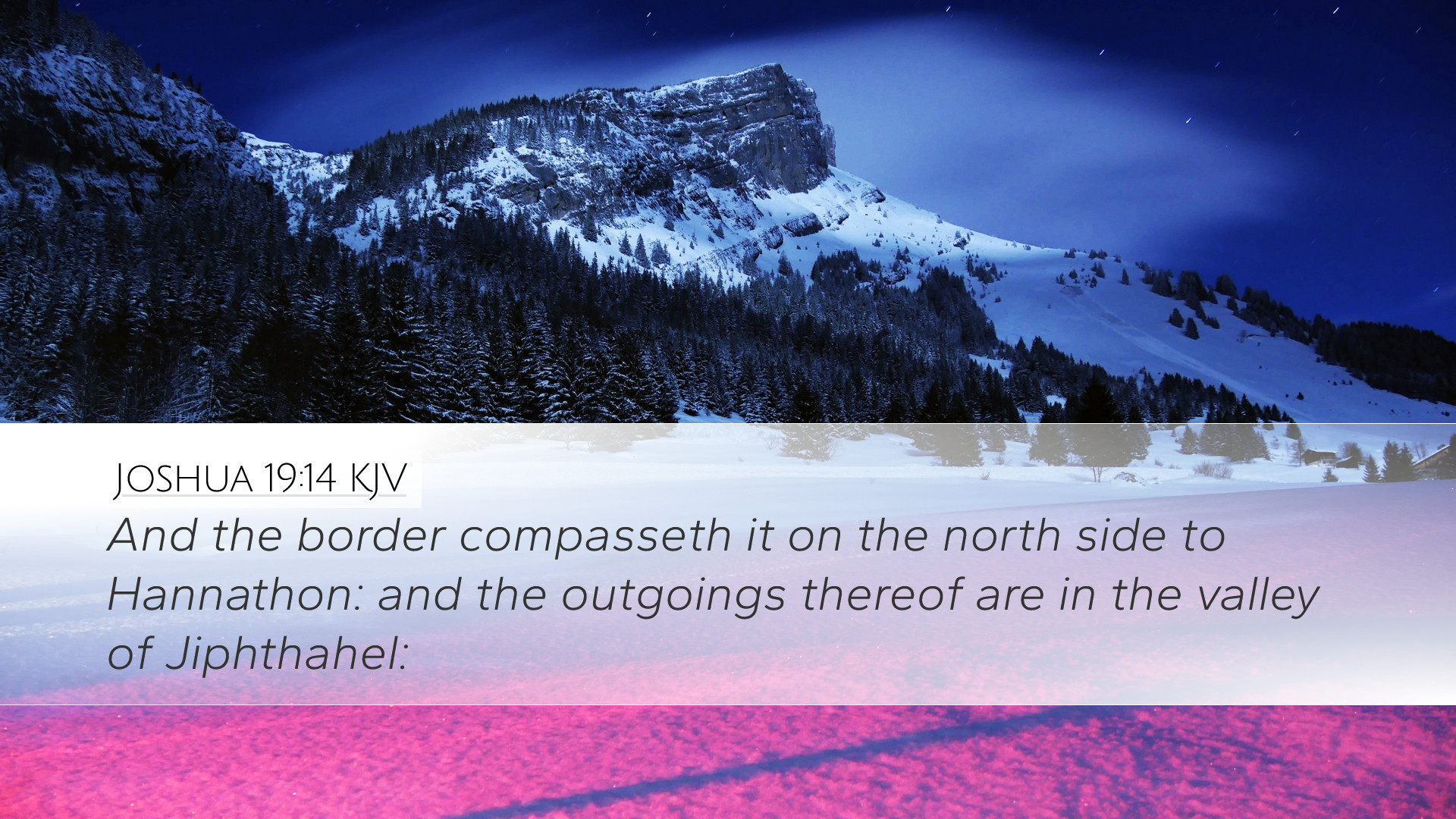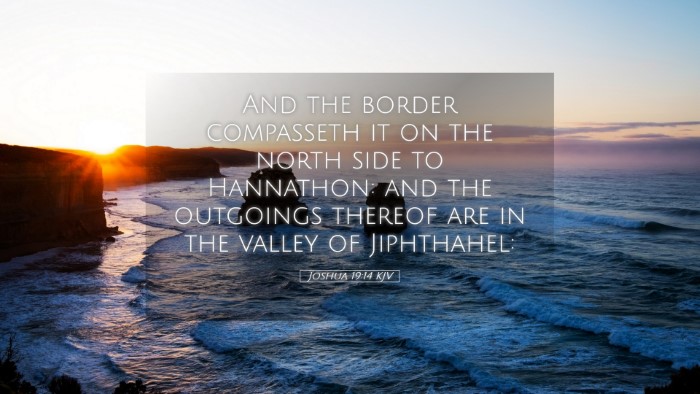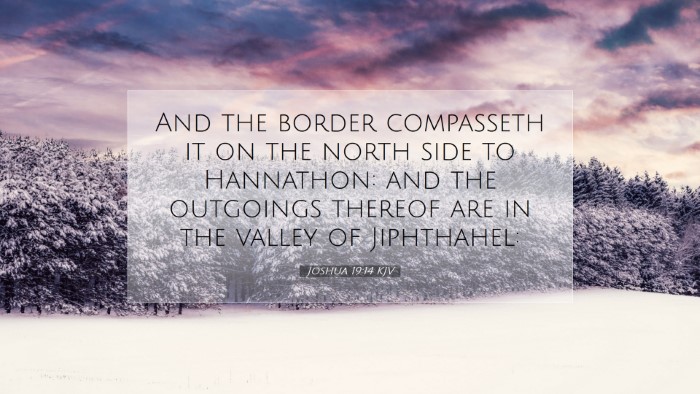Commentary on Joshua 19:14
Verse Text: "And the border went about it on the north side to Hannathon; and the outgoings thereof were in the valley of Jiphthah-el."
Introduction
Joshua 19:14 serves as a crucial verse in the distribution of the land among the tribes of Israel following their conquest of Canaan. This verse is part of a section that outlines the boundaries of the tribes, providing not only geographical insights but also theological and practical implications regarding God's fulfillment of His promises to Israel. The insights from public domain commentaries help deepen our understanding of this text.
Geographical Significance
The boundaries delineated in this verse are significant, marking the allocation of land to the tribe of Zebulun. This northern position, extending to notable cities and valleys, emphasizes the importance of geography in biblical history.
- Hannathon: Identified as a city in the territory of Zebulun, it symbolizes God's gift and provision for His people, illustrating the promise of a fruitful land.
- Valley of Jiphthah-el: Representing both a physical location and a place of spiritual significance, it serves as a reminder of Israel's journey and struggles during the conquest.
Theological Reflections
The geographical boundaries set forth in this verse echo theological themes prevalent throughout Scripture—territorial inheritance, divine promise, and God's faithfulness. As noted by Matthew Henry, the meticulous nature of the boundary descriptions reflects God's attention to detail in fulfilling His promises.
- Divine Promises: The land promised to Abraham, Isaac, and Jacob is now being divided among their descendants, highlighting the faithfulness of God to His covenant.
- Identity and Heritage: For the tribes of Israel, boundaries defined their identity and heritage, reinforcing a sense of belonging to God's promises.
Commentary Insights
Matthew Henry: Henry emphasizes the meticulousness in the division of land, reflecting the broader principle of God’s providence in guiding His people to inherit their portion.
Albert Barnes: Barnes comments on the geographical implications, noting that the land’s allocation serves a dual purpose: physical sustenance for the tribes and spiritual symbolism of harboring God’s presence.
Adam Clarke: Clarke highlights the significance of the cities mentioned, providing a deep understanding of their historical and spiritual contexts that contribute to the narrative of Israel’s heritage.
Practical Applications for Today
The exploration of Joshua 19:14 can yield significant applications for contemporary believers, theologians, and pastoral leaders:
- Understanding Our Inheritance: Just as Joshua divided the land among the tribes, understanding our spiritual inheritance in Christ encourages believers to claim their identity as children of God.
- Faithfulness in Leadership: Leaders are reminded of their responsibility to ensure fair and righteous distribution of resources and responsibilities—a reflection of God’s justice and mercy.
- Embracing Community: The delineation of boundaries serves as a reminder of the importance of community in the body of Christ, where each member has a role and purpose.
Conclusion
In summary, Joshua 19:14 encapsulates not only geographical details but also profound theological significance regarding God's promises and the identity of His people. The insights from public domain commentaries enhance our understanding of this verse as they weave together themes of covenant faithfulness, the importance of heritage, and the practical implications for modern-day believers. As we reflect on the boundaries established for Zebulun, may we also consider our own spiritual boundaries and responsibilities within the Kingdom of God.


